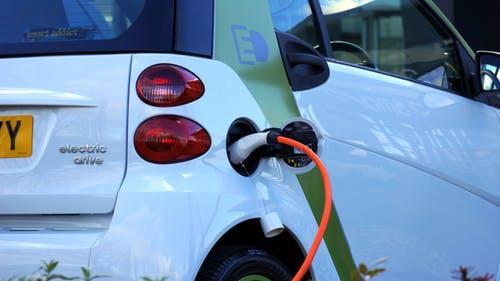GM still committed to rapid BEV roll-out and will have first driverless model ready within 5 years.
The coming year will see a flood of new battery-electric vehicles rolling into U.S. showrooms, including the Ford Mustang Mach-E, the Volkswagen ID.4 and the Cadillac Lyriq.
The latter is one of 20 new BEVs General Motors plans to roll out by 2023, but despite the automaker’s goal of reaching “an all-electric future,” CEO and Chairman Mary Barra said it will take decades for that to happen.
“We believe the transition will happen over time,” Barra said during an appearance on Bloomberg Television, cautioning that even by 2040 not every new vehicle will be all-electric “It will happen in a little bit longer period,” she told interviewer David Rubenstein, “but it will happen.”
Among major automakers, GM has announced one of the most aggressive electrification programs. Earlier this year, it showed the automotive news media nearly a dozen different products, ranging from a stretched version of its first long-range model, the Chevrolet Bolt, to an all-electric supercar, the Cadillac Celestiq. There will be battery-powered sedans and both SUV and pickup versions of the GMC Hummer.
GM teased the GMC Hummer during the Super Bowl and later confirmed there will be both pickup and SUV.
“We want to put everyone in an EV,” Barra said.
Despite Barra’s caution about how soon the transition will occur, GM is maintaining plans for 20 separate BEVs by 2023, with a target of reaching 1 million global sales by 2025.
The word, global, is critical, because the GM CEO – like many industry experts – anticipates the U.S. will be relatively slow to embrace electrification, especially when compared to the Chinese and European markets where regulators are pushing hard for the transition to “new-energy vehicles.” Significantly, both China and Germany have taken steps to incentivize such products as they push to revive vehicle demand after the coronavirus pandemic.
If anything, U.S. incentives are set to start phasing out. Tesla lost its tax credits for BEV buyers entirely at the beginning of the year and GM and Nissan’s incentives are phasing out as a result of hitting sales thresholds. The same will happen to numerous other automakers over the next few years as they add models and boost sales.
GM has, nonetheless, remained at least cautiously bullish, betting it can overcome consumer reluctance with new technologies, such as its Ultium batteries, that will lower EV costs and deliver longer range, improved performance and shorter charging times.
GM now plans to focus on its own driverless ride-sharing shuttle operation through San Francisco-based Cruise.
The largest of the U.S. automakers is betting big on new technologies that include not only EVs but AVs, or autonomous vehicles.
Earlier this year, GM’s San Francisco-based subsidiary, Cruise LLC, showed off a prototype of what is expected to be its first driverless model, the Origin. The toaster-shaped shuttle was expected to soon go into a ride-share test program in the Bay Area. What’s unclear is how that project will proceed considering the pandemic which has not only resulted in government restrictions but also raised concerns by consumers about the safety of using ride-sharing and mass transit.
Despite such concerns, Barra said she “clearly” sees GM putting its first autonomous vehicle in production by mid-decade.
“I definitely think it will happen within the next five years,” she said during her Tuesday TV appearance. “Our Cruise team is continuing to develop technology so it’s safer than a human driver. I think you’ll see it clearly within five years.”
Source: https://www.thedetroitbureau.com
















Leave a Reply